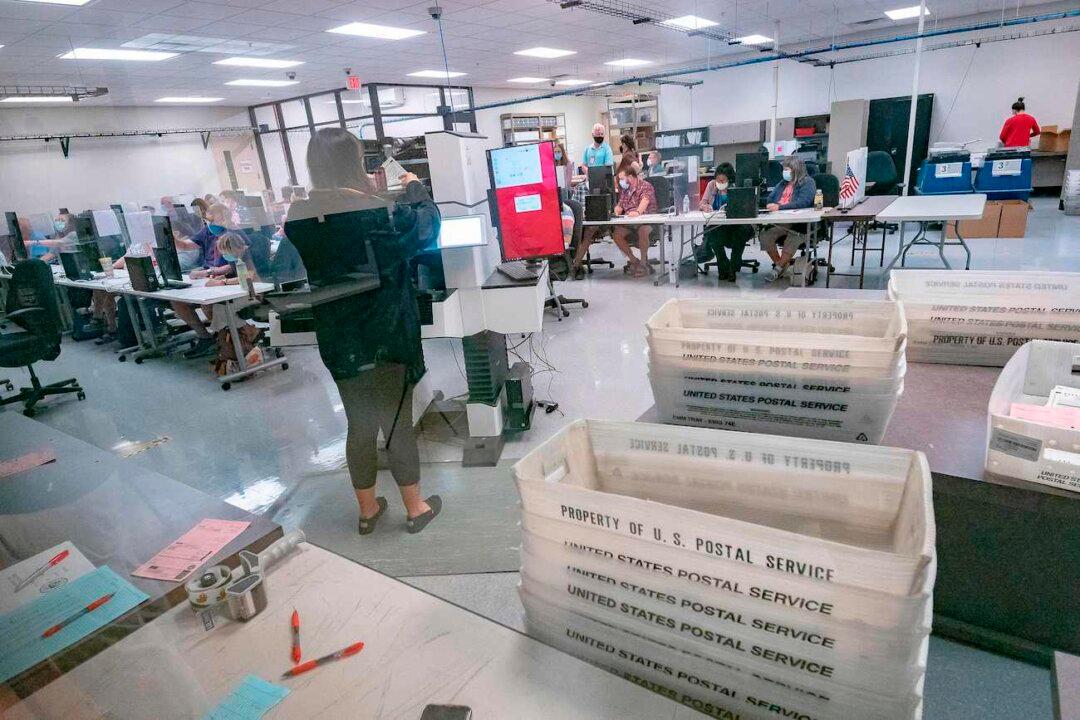The user manual for Dominion Voting Systems machines guides users on how to connect to the internet, and the machines, used by multiple states, were connected to the internet during the election, a cybersecurity expert said on Nov. 30.
“The Dominion suite user manual is about an inch and a half thick. My team went back through the user manual and looked at all the instances where in the user’s manual it tells operators to connect the ethernet cords to the router, and it is—the systems are connected to the internet,” Phil Waldron, a cybersecurity expert and retired Army colonel, told a public hearing in Arizona.





